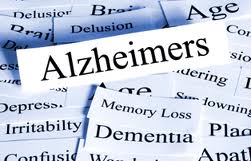Mice with Alzheimer recovered with gene memory are humans next
Friday, April 25th, 2014 12:15:20 by Mike Ross
In the early stages of Alzheimer’s disease, those affected begin to lose the ability to learn and memorize. Thus, one can not remember their house, neighborhood bakery, his own children in some cases and even where he got married. Good news is that some Spanish scientists have successfully reversed Alzheimer in mice, the memory loss in the early phase of the disease with their gene therapy, the animals regain the ability to remember. Not yet known whether this therapeutic strategy will be effective in advanced stages of the disease, but scientists are now thinking that perhaps they can develop a drug that activates the gene, to enhance the cognitive ability of those affected. Only in Spain there are around 400,000 people affected by this form of dementia.
Carlos Saura and colleagues at the Institute of Neurosciences, Autonomous University of Barcelona, have done their research about genetically engineered mice to produce high levels of the protein beta -amyloid that accumulates in the brains of Alzheimer’s patients as plates. They have found that the gene CRTC1, an activator of hundreds of other genes involved in neuronal connections, is altered in early stages of the disease, in mice and in human brain samples. They have also applied a new gene therapy directly into the hippocampus, “the region of the brain where memory is processed and stored for situations such as, time, places” says Saura.
His experiments are easy to explain: in a pool of a square meter of shallow water there is a shelf mice who do not like water are already swimming. On the walls there are references to help them remember where this islet and within days of learning, healthy mice learn to find it without difficulty. However, those with Alzheimer’s can lead to the platform one day, but the following do not remember where they were and start to search again. “we apply Gene therapy, injecting the non-defective gene in the hippocampus, mice with Alzheimer regain the ability to learn and memorize as healthy,” says the researcher. The prestigious journal of the Society for Neuroscience U.S. The Journal of Neuroscience, highlighted on the cover of the latest issue investigating these Spanish scientists.
Could also recover memories? ” I doubt there will be any treatment to recover the forgotten memories, because memory resides in structural and cellular changes in neurons, and if it has been forgotten because they have lost those neural connections, there is no way to replace them… ” Saura aims.
In the therapy transgenic mice is to inject, by surgery, CRTC1 gene directly into the hippocampus, so that its function can be replaced in the neurons in the inoperative. Thus, the protein produced by the healthy gene, the genes involved are restored in neuronal connections and mouse gets the long-term memory back. The animal is now able to go directly to the comfortable pool deck of tests, which was found the day before, instead of starting all over.
In humans, Saura says, would be difficult to translate this form of gene therapy injection into the hippocampus. “The idea is to apply this knowledge to design drugs that activate the defective gene in the patient, so that it regains the ability to learn and memorize,” she explains. “We’re working on the stages of the disease in the initial pathological cellular changes that occur before amyloid plaques and therapy to influence these stages may prevent cognitive loss from forming.”
The next step in their plan neuroscientists experiments is to monitor longer-term mice with gene therapy to see if the development of the disease in the longer term is applied and, secondly, to find out what effect this therapy when Alzheimer’s is advanced.
Short URL: https://www.newspakistan.pk/?p=43293

















